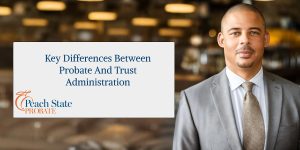## Recognizing Financial Elder Abuse in Estate Matters
Financial elder abuse can manifest in various forms, particularly in estate matters where older adults may be vulnerable due to cognitive decline or physical frailty. This practice involves the illegal or improper use of an elder’s finances or assets, often committed by individuals whom they trust, like family members or caregivers. Unmasking these deceitful acts in estate affairs requires vigilance and an understanding of the signs and symptoms.
Elders may be particularly susceptible to financial exploitation during life transitions, such as retirement or following the death of a spouse. In these difficult times, they rely heavily on their estates to support them, making any form of financial elder abuse deeply concerning. As such, it is critical to recognize the nuanced nature of financial elder abuse to protect against exploitation and preserve the elder’s assets and dignity.
Using a keen eye to identify maladaptive behaviors and irregularities within financial documentation is crucial in combating financial elder abuse in estate matters. Families must remain vigilant and proactive, ensuring that their elderly loved ones are shielded from these predatory practices.
## Understanding Financial Elder Abuse
Financial elder abuse encompasses a wide array of actions, including theft, fraud, and undue influence exerted over an elder’s financial decisions. This type of abuse not only affects the elder’s financial stability but can also lead to emotional and psychological distress. Understanding what constitutes financial elder abuse is key for families and caregivers as they navigate the responsibilities of managing an elder’s estate.
Common examples of financial elder abuse include coercing an elder to change a will under duress, misappropriating funds from an elder’s account, or failing to provide necessary services while taking payment for such services. Family members or individuals in positions of trust may exploit the elder’s lack of understanding of their financial situation, leading to severe consequences that can diminish their estate’s value.
Recognizing the early signs of financial elder abuse can prevent more significant losses in the long run. Reports of sudden changes in financial behavior, unusually large transactions, or reluctance to discuss financial matters can serve as clues for families to investigate further.
## Importance of Addressing This Issue
Addressing financial elder abuse is not just a legal obligation; it is also a moral imperative. As our population ages, the number of seniors increases, amplifying the potential for elder abuse in various forms, including financial exploitation. These instances not only affect the individual elder but have broader implications for families and society as a whole, increasing healthcare costs, reliance on social services, and emotional distress among family members.
The psychological effects of financial elder abuse can be profound. Victims may experience feelings of shame, fear, and isolation, exacerbating existing health issues. Intervening in financial elder abuse cases is essential to restoring a sense of dignity and control to vulnerable individuals, and it can help rebuild familial relationships damaged by betrayal.
Additionally, ensuring that financial elder abuse is recognized and addressed leads to a more informed public. Raising awareness around this topic can empower individuals to take action and develop policies that both prevent abuse and offer recourse for victims.
## The Legal Context of Financial Elder Abuse
Financial elder abuse is not only an ethical issue but also anchors itself within a legal framework designed to protect seniors. Various laws at both state and federal levels exist to combat financial exploitation, including criminal laws, elder justice laws, and civil remedies. State laws typically have specific provisions addressing the issues of fiduciary duty and the responsibilities of guardians or conservators in financial matters.
In Georgia, statutes provide victims of financial elder abuse with paths to pursue legal action against perpetrators. For instance, Georgia’s Elder Abuse Law protects vulnerable adults from exploitation, setting strong penalties for offenders. Understanding the legal landscape surrounding financial elder abuse empowers families to take appropriate action against potentially abusive situations while navigating complex estate matters.
Moreover, the legal framework underscores the importance of documentation and reporting. Gathering evidence such as financial transactions, communications, and other relevant records is critical in pursuing civil or criminal remedies. Engaging with a skilled attorney familiar with these laws can significantly enhance efforts to combat financial elder abuse.
## Real-Life Instances of Financial Elder Abuse
Real-world examples of financial elder abuse often illuminate its insidious nature. Cases may involve family members misusing powers of attorney, stealing funds, or manipulating wills and trusts for their gain. Through case studies, we can understand how financial elder abuse manifests and develops, revealing the tactics used by abusers.
Consider the story of an elderly widower who, feeling isolated after the death of his spouse, was persuaded by a distant relative to grant them power of attorney. Over time, the relative misappropriated substantial amounts from the elder’s savings, utilizing the funds for personal expenses while draining away the man’s financial resources. Family members noticed changes in the elder’s mood and finances, leading to an investigation that ultimately exposed the abuse.
Another example features a caregiver who gains the trust of an elderly person, only to alter bank accounts or property titles to benefit themselves. These scenarios highlight the necessity of scrutiny and vigilance when elders entrust others with their financial matters. Awareness of such cases can arm families with knowledge to protect their seniors and their assets.
## Proactive Measures to Prevent Financial Elder Abuse
Taking proactive steps can significantly reduce the likelihood of financial elder abuse occurring within families. This process begins with open dialogue regarding financial practices and the establishment of clear boundaries. Educating family members about the signs of financial elder abuse empowers them to stay vigilant and aware of potential red flags.
A practical measure is to involve multiple family members in financial discussions, ensuring that no single individual has unchecked control over an elder’s finances. Creating transparent financial practices promotes accountability and can deter abusers who thrive on secrecy and manipulation. Regularly reviewing bank statements and financial documents together can help uncover irregularities early.
Additionally, fostering stronger relationships between elders and trusted professionals, such as financial advisors and attorneys, can contribute to a protective network. These individuals can provide unbiased advice and monitor financial activities. They can serve as a reassuring presence, particularly if family members are concerned about potential exploitation.
## Common Missteps in Addressing Financial Elder Abuse
Navigating the complexities of financial elder abuse presents various challenges, with families often falling into common pitfalls that can exacerbate the situation. One frequent mistake involves waiting too long to address suspicious behavior, often allowing the abuse to escalate unchecked. Prompt action is critical in mitigating losses and preventing further harm to the elder.
Another type of misstep is failing to document concerns. Neglecting to record transactions or communication can weaken a case, making it more challenging to prove financial elder abuse later. Keeping meticulous records empowers families to present a clearer picture of any discrepancies, facilitating intervention.
Additionally, family members sometimes misjudge the situation, assuming their loved one is capable of understanding complex financial matters. This can lead to misplaced confidence in the abuser or failure to recognize the elder’s diminished capacity. Engaging professionals early in the process can help navigate these tricky waters and protect vulnerable individuals effectively.
## The Importance of Legal Counsel
Consulting an attorney specializing in financial elder abuse is essential for families facing this troubling issue. Legal representation can provide invaluable insight into navigating complex laws surrounding elder abuse, helping families understand their rights and options. An attorney can facilitate communication between family members, ensuring that all voices are heard while preserving the elder’s best interests.
One of the most significant benefits of legal counsel is advocacy. An attorney experienced in elder law can stand up for the rights of seniors, pushing back against exploitation swiftly and effectively. They can initiate investigations into suspicious activities and represent families in legal actions designed to recover lost assets.
Additionally, legal professionals can help families put protective measures in place, such as creating trusts or appointing guardians. These strategies can safeguard the elder’s estate while providing peace of mind for families worried about potential abuse. Ultimately, professional guidance is an important tool in promoting an elder’s welfare.
## The Role of Peach State Probate in Combating Financial Elder Abuse
At Peach State Probate, we are committed to serving the needs of seniors and their families throughout Georgia. Our strong understanding of financial elder abuse and the legal framework that surrounds it positions us as a reliable ally in addressing these urgent issues. We dedicate ourselves to empowering families with knowledge and resources while providing robust legal representation in matters of elder abuse.
Our team at Peach State Probate works closely with clients to understand their unique situations, offering tailored strategies to protect their loved ones from financial exploitation. We prioritize open communication, ensuring that families are informed at every step of the process. Through collaborative efforts, we aim to safeguard the financial and emotional well-being of our clients.
We also emphasize preventive measures by assisting clients in implementing safeguards such as establishing clear estate plans and appointing fiduciaries to manage financial affairs responsibly. Our commitment extends beyond legal representation; we strive to raise awareness of financial elder abuse and promote education in our communities to prevent such exploitation before it happens. Learn about financial elder abuse, its impact on families, and how to protect loved ones. Explore detailed resources on managing financial elder abuse cases.




